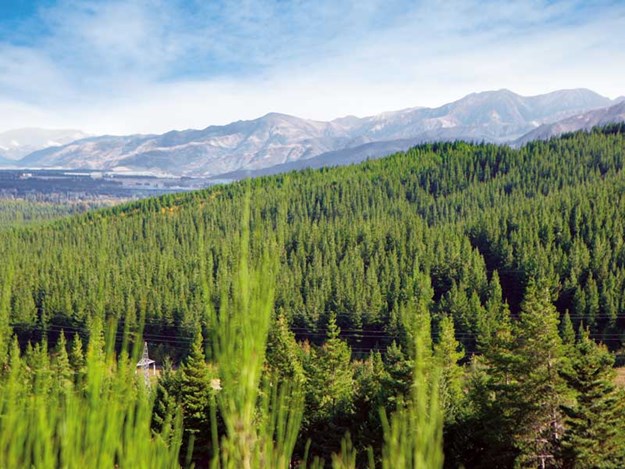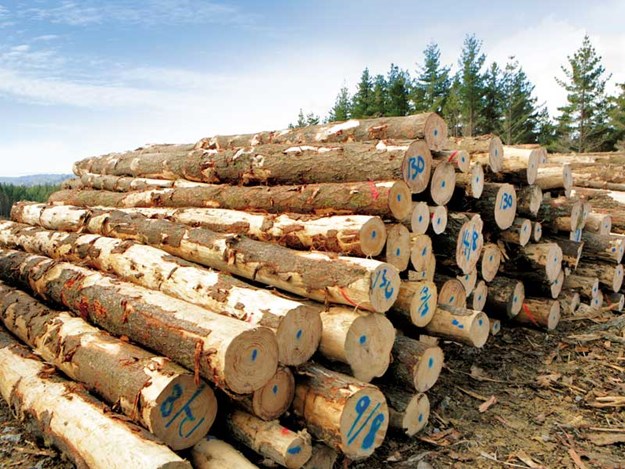Let’s talk Mental Health
The forestry industry is a hard game to play and when we are emotionally and physically committed to something that can be tough going, then that sense of wellbeing and contentment can be threatened
We know a lot about what could generate stress within communities, families and workplaces. However, we don’t know what may be specifically driving stress within the forest industry and its various groups of workers because the nature of the work is different, e.g. exposure to physical risk can be a significant driver of stress but within the forest industry that exposure is quite different for fellers and breaker outs vs machine operators. Similarly, repetitive action can be a driver of stress and that will be different for each of those two groups of workers.

It might be that not knowing what circumstances generate the sense of threat or challenge gets in the way of changing those circumstances or to explain stress within the forest industry, so we need those doing the work to tell us what drives stress in their world.
These comments and this article have been put together by Trevor Best, a student researcher at the School of Forestry, and FICA is standing alongside him to support his research in this area.
 |
|
Trevor Best
|
This is a space we at FICA want to explore further so I encourage you to read this and put your hand up if you can help Trevor to help other forestry mates.
Hard game to play
Work can be one of the pillars of health and wellbeing for ourselves, our whanau, and our communities. Or, it can get in the way of those things. Our work can contribute to our sense of where we belong in this world; it can provide us with the means of providing food, shelter, and other needs for ourselves and our whanau and it can be the source of a supportive social network.
Anyone who reads logging media publications or spends time looking at Facebook pages knows that loggers are rightly proud of what they do and the skills they have and that they value their logging whanau.
However, we also know that it’s a hard game to play and when we are emotionally and physically committed to something that can be tough going, then that sense of wellbeing and contentment can be threatened.
Chronic stress reduces that feeling that I’m doing okay. Becoming emotionally and physically fatigued can erode that sense that I’m good at this and that I’m doing a good job. It can make engaging with whanau (at home and on the job) difficult.
Ultimately, it can increase the risk of poor health and suffering injury. If we want to thrive through our work rather than just survive, we must understand the risk of stress in our logging workplaces and respond accordingly.
Fortunately, the industry is responding. Alongside the contractors and forest managers implementing their own wellbeing programmes, both FICA and FISC have committed to programmes aimed at improving logger and forest worker mental health.

These are largely aimed at helping people who are feeling stressed to respond to those feelings and increase their ability to cope with stressful situations.
However, there are two parts to stress and that approach is only working on one of those parts. Stress occurs as the result of an interaction between threatening or challenging events, situations or ways of doing things, and a person’s assessment of how well they can meet that challenge or overcome that threat.
That means that reducing the risk of stress also means thinking about the happening that create a sense of threat and considering the things that affect the persons assessment of how well they can deal with it.
As a rule, loggers are practical, action-oriented people. Given the time and power to deal with things, they will overcome most problems. However, organising the industry to consider thinking about changing the way it does things so that events, situations or the ways of doing things are less threatening is difficult when we do not actually know which of those things drive whatever chronic stress is being experienced by loggers.
Not knowing what circumstances generate a sense of threat or gets in the way of workers tackling those situations prevents us from changing them. You can’t act on things you are not aware of.
Finding out more about the happenings within logging and for loggers that lead to stress is the objective of my PhD research. We need to be able to explain how someone working in logging ends up feeling unmanageable stress to the extent that it gets in the way of their sense of wellbeing and their work and family life. By doing that, we as an industry can deal with stress differently.
By focusing on what’s happening in the process of someone reaching an unhealthy level of stress, we can start to recognise that a person’s experience of stress could be a perfectly normal response to an unhelpful situation.
That makes it more likely they will seek help because they are not the problem and it gives us the opportunity to use stress as an indicator that something may need to change in the workplace or community.
In this way of looking at stress, the person is okay. The stuff they are dealing with is not, so let’s set about changing that.
To explain stress that impacts on work and life, we need those doing the work to tell us what happenings in their world lead to that situation. As the work itself could be part of those happenings, we need to start by focusing on one group of workers within the industry.
In this case, I’ve chosen to focus on machine operators working on logging sites. So, I’m inviting machine operators working within the logging industry to tell me what events, situations, or ways things get done have contributed, now or in the past, to their sense of being stressed.
If you’re a machine operator and would be willing to commit an hour of your time to have a conversation with me about your experiences, please text me on 027 432 3155 or e-mail me at trevor.best@pg.canterbury.ac.nz. Participation will be completely confidential and anonymous. After all, what goes on tour stays on tour. I look forward to hearing from you. Keep well.
Find more forestry machinery for sale in NZ
Keep up to date in the industry by signing up to Deals on Wheels' free newsletter or liking us on Facebook.

















